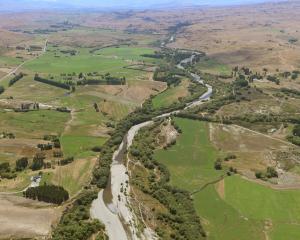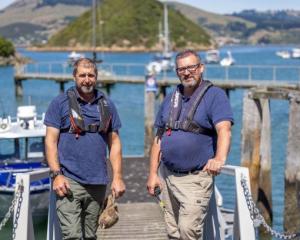A more collaborative approach to public transport is needed if Dunedin is to solve its future roading problems, the Otago Regional Council says.
The need for the Dunedin City Council and Otago Regional Council to work together will be highlighted in the regional council's submission to the Dunedin city draft transport strategy.
Both councils have a role in the city's transport network. The city council manages the network, while the regional council runs the bus system.
The city council's draft strategy outlines key transport challenges facing the city and proposals designed to tackle them during the next 30 years.
Regional council transport policy manager Dr Jane Turnbull told a recent council meeting that to maximise the value of funding they committed to transport and of New Zealand Transport Agency (NZTA) subsidies, the two councils had to work together.
''In a time of constrained funding for transport, the best approach would be for the two councils to collaborate.''
Suggestions included creating a new central hub for the city's bus network and incorporating better public transport facilities during major upgrades to suburban centres, she said.
The regional council recommended the city council base its final strategy around key problems identified in the city's transportation, including inefficient use of funds, investment in the status quo and conflicting transport uses.
''The strategy lacks any real insight into why the city's road safety record and the level of risk to residents is so poor compared to other New Zealand cities.''
The two councils and NZTA should jointly prepare a strategic case for improvements to the city's transport network, she said.
The regional council wanted to be involved in resolving conflict between different modes of travel and the risks to safety resulting from them using the same road.
There were inconsistencies in the strategy, she said.
''Most of the strategy seeks to reduce car dependency and car travel in order to increase safety, public health and resilience ... in contrast, the section on transport equity describes a lack of car ownership and a reliance on other modes of transport as a problem.''
As a result, there was no analysis of how the 23 proposed projects would support levels of mobility or reduce them. Cr Sam Neill said the strategy highlighted again that public transport in Dunedin might be better served by integrating with the city council.
''We can co-operate as much as possible but to my mind, it's a much better fit with the DCC.''
The council agreed a submission based on Dr Turnbull's comments be prepared and sent to the city council.
Submissions on the draft strategy close on August 19.












